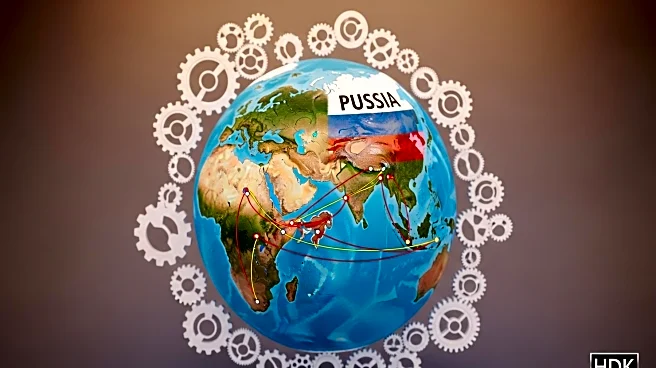What is the story about?
What's Happening?
Russia is actively recruiting migrant workers from South Asian countries such as Nepal, Vietnam, and Bangladesh to address severe labor shortages exacerbated by the ongoing war against Ukraine. Sergei Katyrin, president of the Russian Chamber of Commerce and Industry, highlighted the demographic capacity of these countries to supply workers for long-term contracts. The labor shortage is linked to the mobilization of Russian men for military service and increased demand in defense industries. Russia has already expanded recruitment from India, with quotas rising to nearly 72,000 workers, and wages in Russia being significantly higher than in the migrants' home countries.
Why It's Important?
The reliance on foreign labor underscores the economic challenges faced by Russia due to the war and its impact on the domestic workforce. This strategy may affect Russia's economic stability and its ability to sustain industrial production. The recruitment of South Asian workers could lead to shifts in migration patterns and influence labor markets in both Russia and the source countries. Additionally, the situation highlights the broader implications of geopolitical conflicts on global labor dynamics.
What's Next?
Russia is expected to continue expanding its recruitment efforts, potentially increasing quotas for South Asian workers. This may lead to further international scrutiny and discussions on labor rights and ethical recruitment practices. The Kremlin's attempts to mobilize internal reserves, such as pension indexation and hiring minors, may also face challenges as the labor market adapts to structural changes.
Beyond the Headlines
The use of migrant labor in conflict-affected regions raises ethical concerns about exploitation and the rights of workers. The situation may prompt discussions on international labor standards and the responsibilities of host countries in ensuring fair treatment and working conditions for migrants. The economic pressures faced by Russia could lead to long-term shifts in its labor policies and international relations.


















